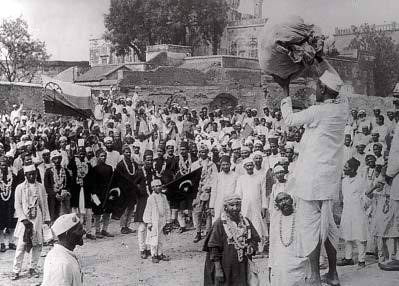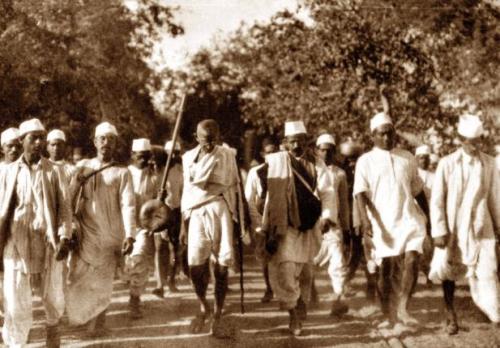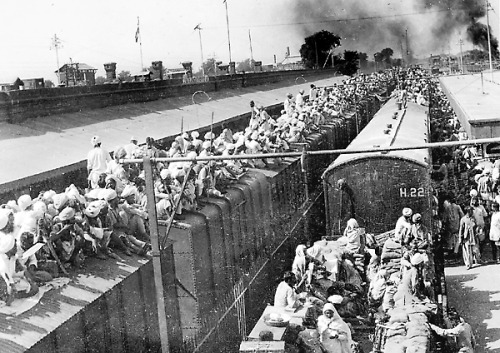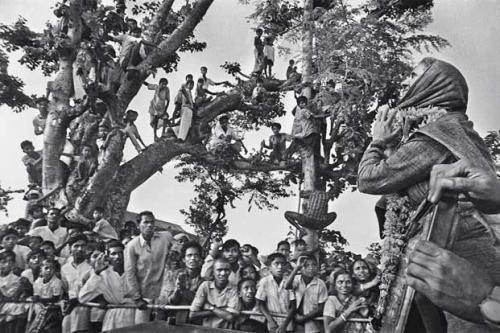#zomg yes
thepostmodernpottercompendium:
The Sacred Twenty Eight: The Noble and Most Ancient Houses of Shafiq and Shacklebolt (2/?)
Pictures, left to right: Jallianwala Bagh Massacre 1919, Non Cooperation Movement 1920-21, Dandi Salt March 1930, Bengal Famine 1943, Trains during the Partition 1947, Indhira Gandhi visits Bangladeshi refugee camps in Bengal 1971.
He does not understand, when he is five, why his mother is weeping for people in a far away place with a strange name which is not home.
When he asks her, she only cries harder, and his father grips him roughly by his shoulder and pushes him away, admonishing him for troubling his mother. Someday, his father says, you will understand.
(He does not tell them, after asking his ayah, that he still does not understand why they care about wicked people who think they can get away with murdering innocent people. Why should they care? They are not theirpeople.)
He does not understand, two years later, when they return from the Halloween ball at the Ministry of Magic; the wrath of Kaliherself writ large upon his mother’s countenance (though she has long since given up her old family gods) and his father’s eyes shining with the same light of battle which must have once shone in their forefathers’ eyes as they swept out of the Hindu Khush following Muhammad of Gor.
Shafiqs are landowners and caretakers, yes, says his father, we grow and we create and we heal the land, but there is also anger in our hearts and when the time comes, we are warriors as well and all men quake when a Shafiq raises his arms to go to war.
(He tells his father he is not a Shafiq then, because there is no anger in his heart and his father only laughs and ruffles his hair and tells him that when he is older, the anger will burn in his heart too.
It is the last time, for a very long time, he hears his father laugh so openly.)
He does not understand, nearly twenty years later, why his mother both laughs and cries at the letter his father sends them from the old country, complaining about the damn bilatisthinking they’re clever by refusing to put us in prison. This is no laughing matter, being put in prison. It is wrongto break the law.
His mother silently hands him a book by a man called Olaudah Equiano and tells him that sometimes men make bad laws and it is for them, the ones who take care of their people, to fight those laws.
(He begins to understand, a few years later, when he realizes that his colleagues at the Ministry care more about Grindelwald’s war and its ill effects on England, not the millions starving back home, or the boats burning to keep the Germans (or the Japanese) from freeing his people; when they talk of oppression by mugglesand he wonders what the non magical folk have ever done to them that can be compared to what they have done to his people - then he understands, they do not look beyond their navels, so they exaggerate their pain, these pampered dandies.)
He does not understand why his father is grim-faced and his mother cries and cries and cries when Clement Attlee finally gives their countries Independence and the bilatisleave. It is a time for celebration - they have finally won their war. People die all the time. Let them die; they are not their own, they are mugglesthey do not have magic.
His mother goes into hysterics when he says this and his father fixes him with such a stare, he nearly wets himself.
Are you a Shafiq? His father asks him, are you my son or a son of a pig? A fool that you spew such nonsense? Are you blind? Have the bilatis turned your brain to porridge?
(He understands, a little, when as he watches his mother’s body burn on the funeral pyre, the tears begin to flow. Death is not easy to see. His father gruffly tells him to be a man and stalks away. Proud and tall as always.)
He begins to understand even more, when he meets his Anglo-Indian wife’s family and he listens to them drawling away about how the homeland is dirtyandstinky and his people are backward.They are your people, your forefathers he wants to yell, but smiles apologetically as his wife squeezes his hand sympathetically underneath the table.
He understands better, when he reads Macaulay’s Minute on Education (1835) and he reads these words:
We must at present do our best to form a class who may be interpreters between us and the millions whom we govern; a class of persons, Indian in blood and colour, but English in taste, in opinions, in morals, and in intellect.
He finally understands properly, twenty three years later, why his mother wept when their people, once united by common cause against their oppressors, turn on each other and commit genocide over divisions created by those very same oppressors they fought to drive away. He understands, when not a murmur is heard in the Ministry of help to be sent to them - when British newspapers are silent about sending troops to help clear up the mess they made in the first place.
But by then it is too late to teach his son what it means to be a Shafiq; to be rich and yet have anger burn in your heart.
So he teaches his grandson instead. These are only stories to them both, but he sees the fire of anger in his grandson’s eyes when he teaches him the history they do not teach them at Hogwarts. Of how the men of this country went to their homeland and stole from them in the greatest sanctioned robbery in the history of the world - 2.5 billion pounds (probably a lot more) stolen to never be returned. Of how, for two hundred years, they were taught that their ways were inferior and foolish, based on superstition not science. Of how they burnt their boats and stole the very souls and identities of people by turning them British, by turning them against their own culture (like your father, he says regretfully).
Of how these very men turned their people against each other: one religion against each other, countries arbitrarily divided along the lines of religion leading to one of the largest massacres in history. Of how ten million of their people were displaced overnight, in a war caused by the same arbitrary division of nations along the line of religion and politicking - this time for culture and language, because truly what did people in Dhaka have in common with people in Islamabad besides a vague commonality the bilatisdecided superceded all other commonalities? But now ten million people fit neither here nor there - they were not Bengali because they were muslims but they were not Pakistanis either (how could they be, those northeners were so different.) Ten million people with no identity, always to live unsure of themselves. This was the story of their people; magical or not, allof them were theirs.
And then many years later, his eyes are misty with tears as he watches his seventeen year old great grandson snap his wand and declare that he will not live as a bilatiwizard among a people with no conscience and no guilt for their cruelty. He goes to muggleuniversity instead, and then returns to his homeland to make a difference by working in a muggleNGO, practicing their old magic. The magic of their forefathers. And nobody serves him notice for using magic in the presence of muggles.
It is a start, he supposes, and then imagines his father would be proud. The anger has burnt in his heart and he has passed the flame of anger on. They will be caretakers, they will be warriors.
There will always be a Shafiq as long as they remember.
[Pic sources will be added later. Many thanks to notyourexrotic for helping with various bits of information and shaping this story (also for their incredible project shafiq28 which, I’ll be honest, shaped the headcanons for this one in a hugeway). I never liked the whole Statute of Secrecy biz given its ramifications when you apply them to other countries outside of the Euramerican region - its similarities with the whole divide and rule policy which governed Brit colonial policies when they were leaving countries are far too close for comfort.]
[[re-reblogging for this as there’s been an update to the original.]]
Post link






